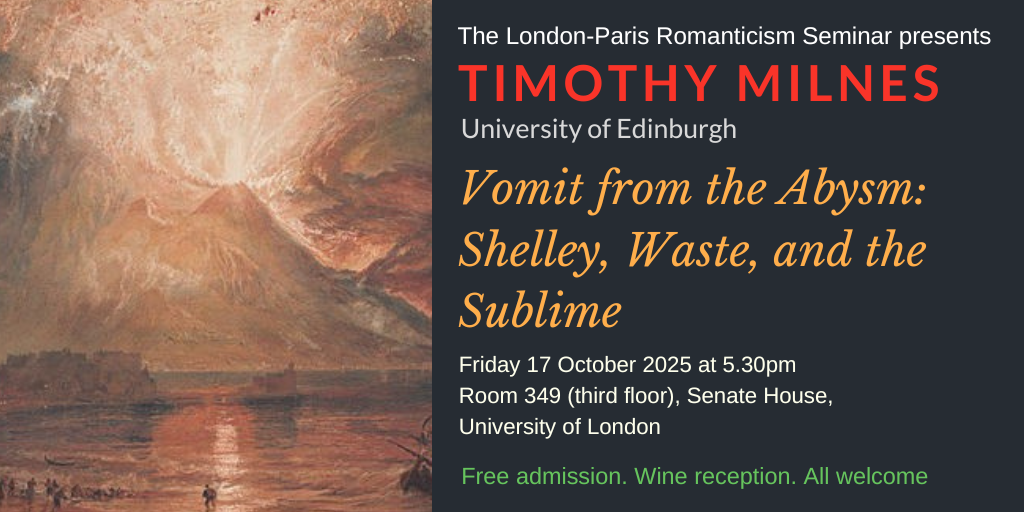
The first meeting of this year’s London-Paris Romanticism Seminar will take place on Friday 17 October 2025 at 5.30 pm in Room 349, Senate House, University of London. To launch the new series, we are delighted to welcome as our distinguished guest speaker Professor Timothy Milnes of the University of Edinburgh, who will present a paper entitled Vomit from the Abysm: Shelley, Waste, and the Sublime. This will be followed by a discussion and wine reception. The event is free and open to everyone, including postgraduates and members of the public. The seminar will be chaired by David Duff.
Timothy Milnes is Professor of Romantic Literature and Philosophy at the University of Edinburgh. He is the author of The Testimony of Sense: Empiricism and the Essay from Hume to Hazlitt (2019), The Truth about Romanticism: Pragmatism and Idealism in Keats, Shelley, Coleridge (2010), and Knowledge and Indifference in English Romantic Prose (2003). He also co-edited Romanticism, Sincerity, and Authenticity (2010). With the support of a Leverhulme Research Fellowship, he is currently writing a monograph entitled Romantic Waste: Excess and Emptiness in English Literature, 1789-1832, which will be published by Stanford University Press.
Regarding the subject of his talk, Tim writes:
‘When interrogated by Asia in Prometheus Unbound (1820), Demogorgon retorts:
If the Abysm
Could vomit forth its secrets:– but a voice
Is wanting, the deep truth is imageless;
(II. iv. 114-16)
The term “vomit” implies that the “deep truth” sought by Asia is itself an abjection, a regurgitation of something that is familiar and yet alien, indigestible. The secrets of the void are “imageless”, Demogorgon suggests, because they are obscene, unthinkable. In this talk, I explore the ways in which Shelley probes this excremental dimension of the sublime: first in “Mont Blanc”, and then in his letters from Italy, which reveal the ways in which his fascination with geological and architectural remains framed his disgust at both a wasting reality and a degrading humanity. Despite this repulsion, I argue, Shelley’s writings ultimately counter the broader instrumentalization of reason systematised by utilitarianism by reconfiguring the aesthetic subject as essentially wasteful.’